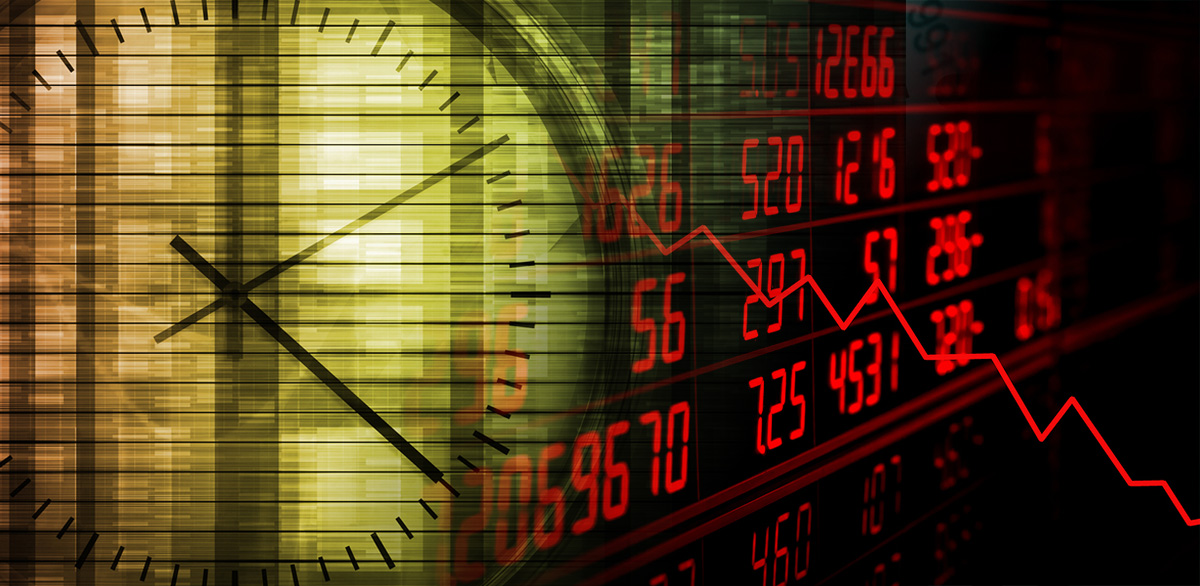
‘There’s less reason to behave like it’s ‘morning in America’ than ‘happy hour in America.’ -Morgan Stanley[1]
The current economic recovery turns 9-years-old this month. Another year of growth, and we’ll have reached the longest economic expansion in history.[2] How long will it last? Only a year or two, predict economists. Bolstered by fiscal stimulus and historically low interest rates, the economy could quickly lose momentum as monetary policy changes are implemented. Rising oil prices and trade tensions could even cause it to reverse course—or worse, crash.[3][4]
Record-Breaking Economic Expansion
Most economists predict the economy is on track to break the record for the longest expansion in modern history. The tech boom that lasted from 1991 to 2001 currently holds the record, with 120 months of economic growth. Since the Great Recession of 2009, the economy has been growing for 108 months. Analysts at Goldman Sachs give the current expansion a 90 percent chance of taking the title of longest ever.
What’s driving the growth? Increased government spending and GOP tax cuts are certainly helping. However, economists predict the stimulus will only fuel the economy for another couple of years. Even more concerning is the cost the International Monetary Fund asserts this last little growth spurt will have on the economy: “an unprecedented expansion of the federal deficit.”
Unlike the rest of the advanced economies around the world, America’s debt-to-GDP ratio will get worse as national debt grows in the next five years. As the impact of the stimulus sputters out, the government will be left with fewer resources to aid a slowing economy, and we could enter a period of “economic hangover.” Add rising inflation and interest rates to the equation, and the economic picture becomes even bleaker. A global trade war could well be the tipping point.
Signs of a Recession
In the eyes of many economists, a recession is upon us. What factors are driving the economy toward the next downturn?
Rising Interest Rates
With the Fed predicted to continue raising interest rates over the next couple years, the cost of debt—currently at record levels in the public and private sectors—will become even more unmanageable. The inability of consumers and businesses to service their debt or borrow money could seriously curtail spending.[5]
Tough Trade Policy
A trade war could cause serious economic damage, indicates Mark Zandi, chief economist for Moody’s Analytics. If President Trump imposes 25 percent tariffs on imports from Mexico and China, which by all accounts he has gone through with, ‘NAFTA would likely fall apart, and financial markets would begin discounting much worse. A recession would be a real possibility,’ he said.
Zandi isn’t the only financial expert who views Trump’s trade policy as problematic. Three-fourths of the 45 economists on a panel of the National Association for Business Economics (NABE) foresee the nation’s current trade policies proving detrimental to the economy. Kevin Swift, vice president of NABE, said the escalating threat of a global trade war has made the organization less optimistic about the future of the U.S. economy: two-thirds of NABE economists predict a recession will hit by the end of 2020, and 18 percent expect the downturn to come even sooner—by the end of 2019.
Increasing Inflation
Rising interest rates, climbing consumer and oil prices, and soaring debt combined with a stagnating stock market are signs that inflation is coming. At the same time, wage gains could prove insignificant when increasing gas prices and tariffs are factored in.[6]
Weak Consumer Confidence
Consumer fears that the “good times” are nearing an end could turn out to be the greatest blight on the economy. From small purchases to life-altering financial decisions, consumers are taking a conservative approach. Despite tax cuts, consumer spending in the first quarter rose at its weakest pace in almost five years. This follows a year of the lowest birth rates in the U.S. in 30 years.[7]
Dollar Devaluation
When the recession hits, expect a dollar crash. That’s usually the trend during times of high inflation and economic downturn. According to expert predictions, investors have a short period to diversify their portfolios before the economic winter sets in. With precious metal prices in a pullback, now has never been a better time to buy precious metals to protect your financial future.


